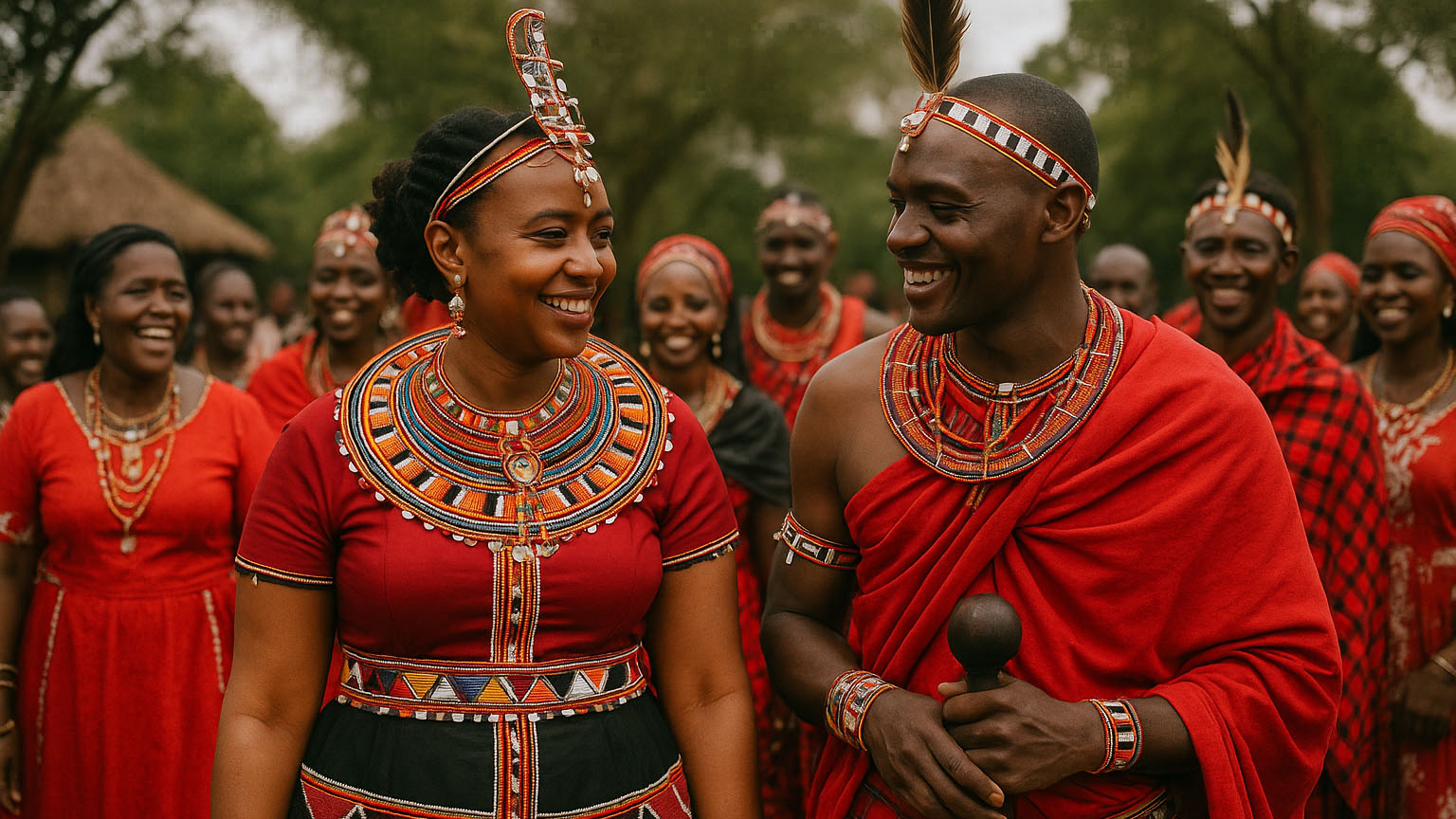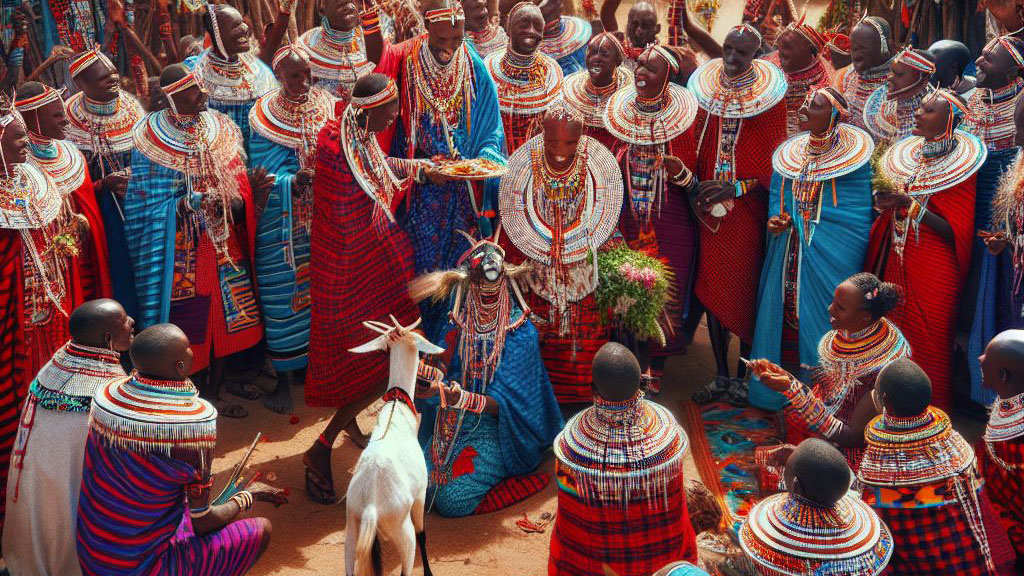Kenyan traditional weddings are a vibrant tapestry of culture, community, and celebration, reflecting the diverse ethnic groups that make up the nation. Each community has its unique customs and rituals, but common themes of family, unity, and respect for tradition are woven throughout.

In many Kenyan cultures, traditional weddings are not just a union between two individuals but a merging of families and communities. The Kikuyu, for example, have a series of ceremonies that begin with the "Ruracio," or dowry negotiation, where the groom's family presents gifts to the bride's family as a symbol of appreciation and commitment. This is followed by the "Ngurario," a ceremony that marks the actual marriage, often involving the slaughtering of a goat, which symbolizes the couple's new life together.
The Maasai community, known for their colorful attire and intricate beadwork, celebrate weddings with elaborate rituals that can last several days. The bride is adorned with traditional jewelry and a red shuka, while the groom wears a black or blue shuka. The ceremony includes singing, dancing, and blessings from elders, emphasizing the importance of community support in the couple's new journey.
In the Luo tradition, the bride is escorted to the groom's home in a procession filled with music and dance. The ceremony includes the "Ayie," where the bride's family formally accepts the groom's proposal, followed by feasting and merriment. The Luo place great importance on the involvement of extended family, highlighting the communal nature of marriage.

On the one hand, the dowry system and ceremonies that follow are a beautiful part of Kenyan culture, but on the other hand, there can be incidences of the bride’s family exploiting the groom. Some will give out an unimaginable and unrealistic amount for the groom to pay, and in turn create an obstacle towards marriage or even animosity between the families. On the extreme end, tragically, it can also lead to domestic violence.
Despite this, done well, traditional weddings are a time for joyous celebration, where vibrant attire, music, and dance play a central role. They are a testament to the rich cultural heritage of the country, showcasing the values of love, respect, and unity. As modern influences blend with age-old traditions, Kenyan weddings continue to evolve, yet they remain a profound expression of cultural identity and familial bonds.
